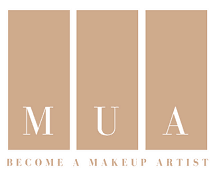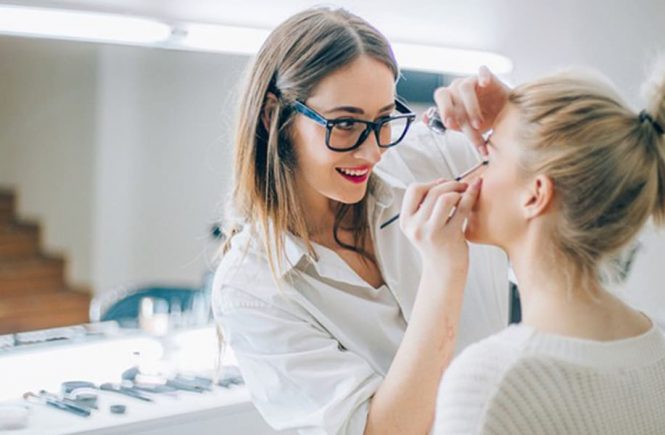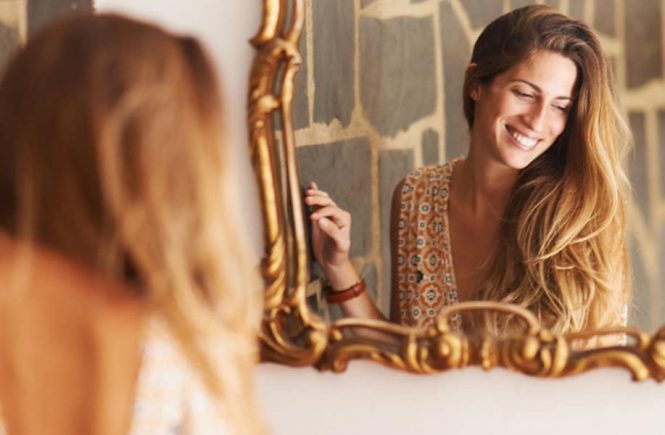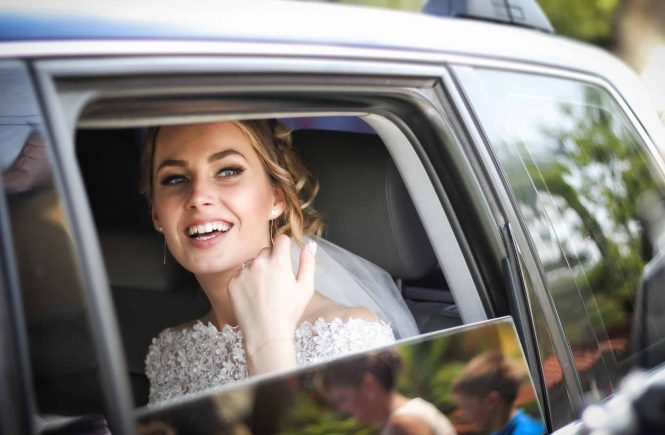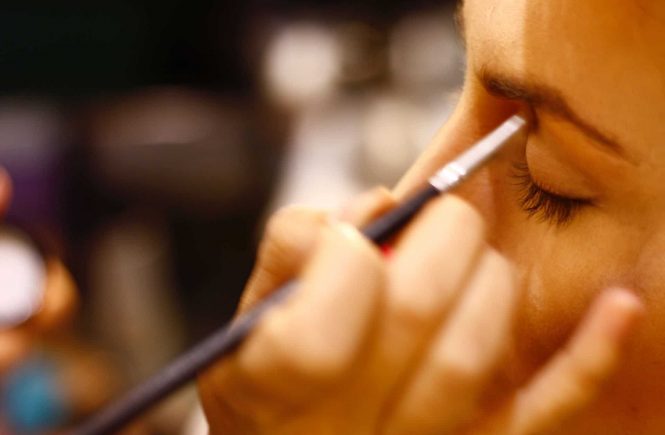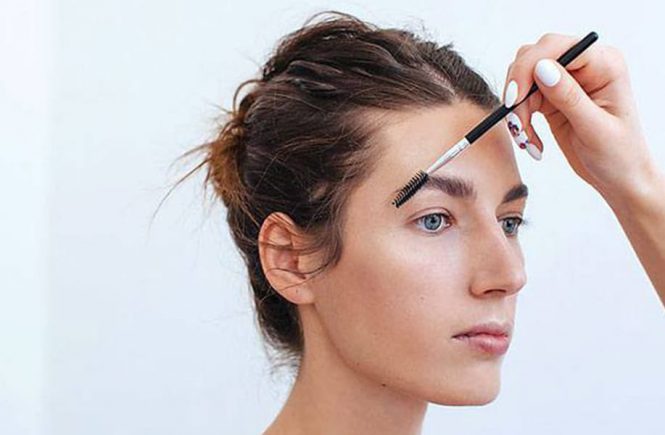First of all, congratulations on taking the first step to your new career as a Makeup Artist! You’re in the right place to find all the info you need to start an exciting career as a MUA.
In Australia, and indeed globally, makeup artists are in consistent high demand so you’re making a smart decision entering the makeup industry. However, you must also know that there is loads of competition – but, if you’re hard working and determined and creative enough, you can easily overcome this challenge and earn a great living whilst doing what you’re passionate about. You can literally be living the dream!
What does a makeup artist do?
When many people think of a makeup artist, they think of a backstage artist applying makeup to models. This is one niche of makeup artistry, however there are also plenty more ways in which makeup artists work (for instance, applying cosmetics to clients freelance (such as bridal parties, pre-party makeup and school ball makeup), giving makeovers, makeup for models/actors, working in the television industry, runway/fashion makeup, theatre makeup and special effects makeup).
And this is by no means an exhaustive list… for more on the specifics of makeup artists and the various niches, be sure to look around our site. Click here for a glossary of specialist makeup artists.
Working as a professional makeup artist can be very rewarding, exciting and most of all, fun! It also involves hard work, long hours and plenty of patience though – so you’ll need to be dedicated to your craft and passionate about makeup to ensure that you stay motivated throughout your training and career as a makeup artist.
Being a makeup artist is truly a profession where you absolutely must LOVE what you do. Unlike some other jobs where you can mentally switch off and be on autopilot, being a makeup artist requires you to be constantly on your feet, being creative and transforming the looks of your clients. If you love being creative and get bored easily, this is the perfect job for you as there’s never a dull moment! Every client is different which means that no two jobs will ever be the same.
Some makeup artists will get to travel the world whilst they work on exciting projects and meet new people and, if you’re in high demand, many clients may even travel the world to see you! Many makeup artists go on to become makeup teachers and educators and even write their own books… this means that as your career advances, new doors will continually be opening up for you to pass on your skills to others if you ever decide to stop applying your makeup skills to clients. So although makeup artists are in a very competitive industry, the consistent opportunities mean that becoming a MUA can be a very smart career move if you’re passionate and dedicated.
As makeup artists gain experience and training, they will also build up a body of work that then allows them to charge higher rates for their artistry and gets them closer to high-profile work in the lucrative fashion and entertainment industries.
What training do I need to become a Makeup Artist?
If you want to become a Makeup Artist in Australia, you’ll need to complete a Certificate III in Makeup. When completing a Cert III in Makeup, you’ll be required to complete a number of supervised training hours (similar to an apprenticeship) to help you build up your skills. The entry requirements can vary, however you will usually need to have completed year 10 of high school. Your training as a makeup artist will occur in a range of locations including on-campus, in purpose built educational makeup studios and on-location, to prepare you for a range of different environments that you might work in as your career grows.
You may choose to stop at a Certificate III in makeup, however many students then go on to pursue more specialist training for specific niches such as:
- Theatre Makeup
- Special Effects (SFX) Makeup
- Bridal Makeup
- Retail Makeup
- Fashion, Runway & Catwalk Makeup
- Editorial Makeup
- Television & Screen Makeup
If you are a freelance makeup artist, you may also wish to consider taking a short business course to help you learn the basics of marketing yourself and operating as a registered business. As makeup falls under the health and beauty category, you’ll need to be aware of the insurance that you’re required to have to protect you and your clients if something goes wrong (for instance, if someone has an allergic reaction to a product).
If you are employed by a company as a makeup artist, your insurance and marketing will be taken care of by the company, however it is always looked upon favourably by employers if a makeup artist chooses to continually update themselves with new training, as well as staying up to date with the latest techniques and makeup trends.
Click here to read more about completing your certificate III in makeup.
The second option for those is wish to become a fully qualified makeup artist quickly or within a year is through full time study through a Registered Training Organisation (RTO) such as a public institution like tafe, or through a private establishment. Your personal requirements, how you’d prefer to study and your financial commitments will dictate the sort of course that’ll be best suited to you, so ensure to do your research!
On completion of any full time study through a RTO, you’ll be recognised with a national trade qualification for makeup.
Click here to read more about completing your certificate III by studying makeup full time or part time.
Ready to be a makeup artist?
Now that you know that you want to be a makeup artist, once you establish yourself and get qualified, then it’s time to get yourself out there, put the hard work in and get yourself some clients!
If you’re seeking employment with a company such as MAC or with a department store/chain such as Myer, Sephora, Mecca Cosmetica/Mecca Maxima, take it one step at a time. Get your resume together and prepare an application (read more about that here), start networking and above all… practice your skills! Practice on family and friends, put a call out in Makeup Artist Facebook group for volunteer models… you’ll be surprised how many people are willing to let you practice your skills on them. You get a portfolio piece, and they get to feel great for a night out.
On the note of portfolios, start collecting a bank of images of your work (the higher quality images the better, although when you first start out then good quality iPhone photos will also do the job) and find a creative way to display them. Many Makeup Artists have personal websites to display their portfolios so you may wish to do the same (and you can read more about setting up an online portfolio here).
Even if you’re looking to be self-employed or freelance, don’t be afraid to get searching for jobs too – many makeup artist jobs are part-time and can help you build your portfolio. There are plenty of jobs online so make sure to check sites such as Seek, Indeed or even Facebook Groups and Gumtree!
Be proactive and at the start of your career, don’t be afraid to ask for opportunities at local beauty salons… if you don’t ask, you’ll never receive!
The sky truly is the limit when it comes to what you can do with your career as a makeup artist – so whether you want to work in fashion, theatre, bridal; whether you choose to be freelance or employed by a company… use your imagination and get creative! After all, makeup artistry is fuelled by creativity!
Let’s summarise:
First Step: Make sure that you’ve fully researched the industry and are 100% aware of all factors (including the highs and lows, how much you’ll earn as a makeup artist and what you can expect day to day) before committing to a career as a makeup artist. While studying to be a professional makeup artist, make sure you look into how much Australian Makeup Artists can earn. You may also be entitled to financial aid while studying.
Second Step: Make sure you complete a Certificate III in Makeup as a starting point – this is what you’ll need to qualify as a professional Makeup Artist in Australia.
Third Step: There are also lots of supplementary courses or full-time study courses to help you advance your skills so be sure to research the best fit for your needs.
